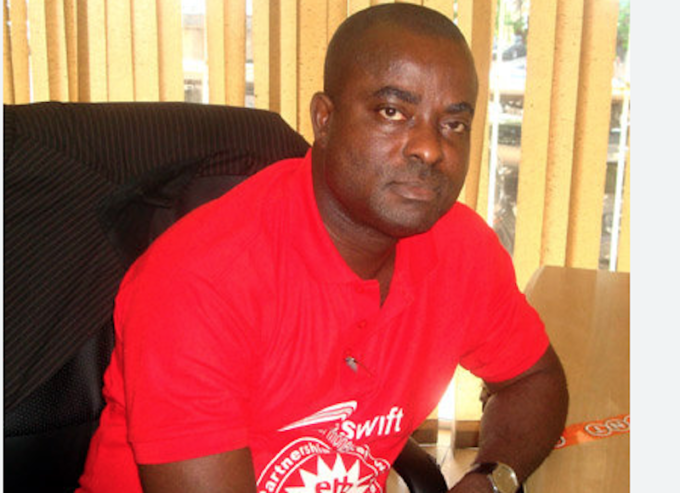The National Hajj Commission is delivering on its mandate, writes Kingsley Okoh
As elsewhere in the world, Hajj has evolved as a religious barometer in Nigeria. Even when they knew that he or she had not made the Hajj, non-Muslims generally refer to a devout Muslim as an Alhaji or Alhaja, a tacit acknowledgement of the person having reached the peak of faith, so to speak.
Hajj has also become a status symbol; it is used as a title for the affluent, even if assumed. Hajj exercise has gone
on in Nigeria for decades. The high and the low, the old and the young, the rich and the poor, perform Hajj. Until very recently the Hajj season has evoked nostalgia and expectations. The returning pilgrim was often met with fanfare. The most profound effect is how it reflects on the image of the country and its reputation as a state.
Every year the Hajj exposes the country to the world by the way it has been managed vis-à-vis the global Hajj operations. Moreover, the behaviour of Nigerian pilgrims, itself, is largely a by-product of the way and manner the Hajj is operated, and reflected the image of the country.
Hajj is one of Nigeria’s earliest institutions. Whole communities were often looking forward for a time and moment of participation and journey to the holy land. The colonial government came to meet it as a religious function, recognized it so and did not interfere with peoples’ acceptance of this religious duty.
The annual Hajj pilgrimage is a global phenomenon; Its management involves catering for the pilgrims’ traveling needs, documentation, transportation, accommodation, health and general welfare. Many of the pilgrims are going on Hajj and perhaps traveling out of the country for the first time. Going for a rigorous spiritual matter, and in a more or less different society, the pilgrims need special attention. Significantly, Hajj became an important annual exercise in Nigeria with large Muslim populations participating.
Haj pilgrimage is truly an experience of a time that brings a complete change in the spiritual and behavioural life of Muslims all over the World. It is recorded that the performance of haj completes the five pillars of Islam which attests to the fact that no one deserves to be worshiped except Allah and Mohammed, then prayers must be established to communicate with Allah to seek his guidance; a purification of wealth to help the poor, observe one month fasting and build your faith in Allah.
To control and manage pilgrims affairs in the country is the National Hajj Commission of Nigeria, statutorily appointed to ensure a hitch free haj exercise to Mecca and Medina annually.
All pilgrims are usually expected to make specific payments to cover all expenses and cost, except those sponsored by the states.
The haj commission has disconcerted its critics by showing financial prudence as it returned about N5.3 billion to state pilgrims welfare board over unprovided services in the 2023 haj exercise.
Speaking at the post haj meeting and strategic dialogue with tour operators in Abuja, the Chairman of the commission, Abdulahi Saleh Usman said the action has restored public confidence, promoted transparency and reaffirmed accountability in the management of haj operations. He said the unspent funds are disbursed to owners in accordance with a universal template which empowers respective pilgrims welfare agencies, boards or their tour operators to process claims.
Again, despite the economic and logistics challenges, the commission under the leadership of Usman delivered on the core mandate of efficient and dignified haj operations.
NAHCON has successfully negotiated with haj official carriers to accept local currency, to curb delay and difficulties in preparation.
Notably, around various incentives provided is the suspension of the Central Bank of Nigeria (CBN) credit and payments of BTA by pilgrims. The policy needed adequate enlightenment of pilgrims, who are not conversant with the payment system. Business Travel Allowance (BTA) is a provision in Nigeria that allows residents to access foreign currency for business related travel expenses abroad, a financial procedure not common amongst a greater percentage of Nigerians.
Undoubtedly, the current economic realities and the impact of exchange rates have affected foreign trade as well as private foreign trips, including religious conferences and pilgrimage.
One of the elemental achievements of the commission is the expansion of the haj savings scheme, which allows intending pilgrims to save gradually over time, making it a lot more easier to sort out pilgrims expenses.
The scheme is seen as remarkable in the face of prevalent high cost of living, and numerous challenges associated with global economic crisis.Haj reforms by the agency includes a negotiation in the cost of payment for services, of airlines, hotel accommodation, etc, to reduce the burden of expenses on pilgrims.
Health and medical services are essential part of haj, which guarantees adequate and quality medical services, bearing in mind, hazards that come with change in weather, environment and climate.
The commission has made remarkable improvement in the 2025 hajj operations, over the past, and had consolidated ahead of the 2026 hajj. Before now, extensions were granted and deadlines for all forms of preparations were usually shifted to accommodate late documentation; however, the agency has fixed November this year as official commencement of hajj operations, and all forms of documentation for 2026 haj closes march next year.
The government is solely responsible for Hajj operations in Nigerian, just like some other countries, and so has statutory powers to reform the operations to curb complacency and abuse of processes.
In the past, Nigerian pilgrims either failed to turn up to be airlifted at scheduled time or the airlines were not punctual for either or both outbound and inbound airlifts, hence, the Hajj season became a season of anxiety and embarrassment for Nigerians.
Nigeria stood out as one of the countries that airlifted its pilgrims behind schedules. It became almost an annual ritual that Nigeria had to plead, sometimes for the re-opening and extension of time.
However, the current leadership of the haj commission has set irreversible deadlines that all pilgrims, tour operators, airlines and other service providers must adhere to.
It has declared that haj services can no longer be business as usual, as all activities must comply with the schedule.
Okoh writes from Abuja

















Leave a comment